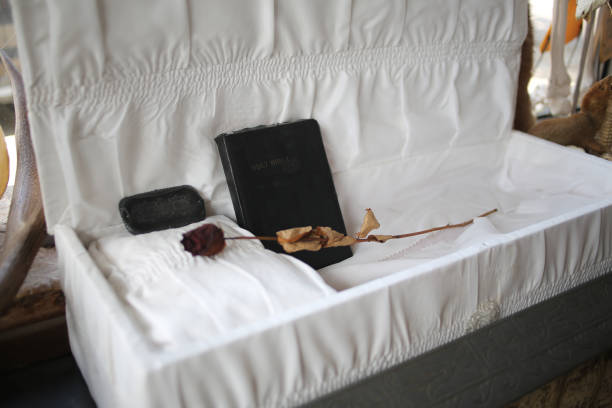In many cultures, attending a funeral on one’s birthday is seen as a way to pay respects to the deceased and create positive memories while going through the grieving process.
However, different beliefs and superstitions surrounding death and funerals can make the decision to attend a funeral on one’s special day a complicated one.
This article explores the various beliefs and customs surrounding funerals and birthdays, and how they differ across cultures.
While saying goodbye to a loved one is an important part of the grieving process, it can be especially challenging when it coincides with a celebratory occasion such as a birthday.
Some cultures encourage attending a funeral on one’s birthday as a way to honor the deceased and show respect to those who are mourning.
However, superstitions and beliefs about death and funerals may cause individuals to hesitate in attending such an event.
Understanding these different perspectives can provide insight into the complex emotions and cultural practices surrounding funerals and birthdays.
Why Attend Funerals?
The importance of attending funerals as a means of saying goodbye and respecting the deceased is a widely held belief across different cultures and is an integral part of the grieving process. Saying a final goodbye allows the grieving process to begin, providing a sense of closure and acceptance of the loss. It also helps to create positive memories when looking back on the experience.
Attending a funeral is a sign of respect for the deceased, showing that their life mattered and that their passing is felt by those who knew them. Moreover, some believe that being near a dead body could heal the living. The deceased’s healing powers are believed by some to be present during a funeral, which is why attendance is encouraged, especially for those who were close to the deceased.
It’s important to consider all the reasons for attending a funeral before deciding to miss it as it’s a final chance to say goodbye and should not be taken for granted. The function of funerals and rituals in relation to grief reactions has been explored, and it’s clear that attending a funeral can provide comfort and support during a difficult time.
Beliefs and Superstitions
Symbolism plays a crucial role in shaping cultural attitudes towards death and mourning. Attending funerals is a way to pay respect to the deceased and provide comfort to their loved ones. However, there are bad luck beliefs associated with attending funerals, such as the belief that attending a funeral on your birthday can bring negative energy. Despite these beliefs, it is important to consider all the reasons for attending a funeral before deciding to miss it.
Saying a final goodbye is an important part of the grieving process and can create positive memories when looked back on. Being there for grieving family members is also crucial, as it shows support and love during a difficult time.
Different cultures have different beliefs about attending funerals. Some cultures believe that looking at the deceased can bring bad energy, while others, like African American culture, believe that sunny days are ideal for funerals as it signifies a warm welcome into heaven. In Chinese culture, it is considered bad luck to attend a funeral on your birthday, while Chinese families will often plan funerals around the birthdays of loved ones.
It is important to consider the beliefs and customs of different cultures when attending a funeral, as it shows respect for the deceased and their culture. Despite conflicting beliefs and superstitions surrounding death and funerals, it is important not to miss a funeral as it is a final chance to say goodbye and should not be taken for granted.
Cultural Differences
Cultural attitudes towards death and mourning vary greatly across different societies and can shape beliefs and practices surrounding funerals.
When it comes to attending a funeral on one’s birthday, cultural taboos can come into play.
In Chinese culture, for example, it is considered bad luck to attend a funeral on one’s birthday, as well as while pregnant or engaged.
Instead, Chinese families will often plan funerals around the birthdays of loved ones to avoid any potential bad luck.
On the other hand, in some cultures, celebrating birthdays is not as important as showing respect for the deceased.
Attending a funeral on one’s birthday is encouraged if the deceased was a close friend or family member.
Ultimately, it is important to consider the beliefs and customs of different cultures when attending a funeral.
While some may see attending a funeral on one’s birthday as a bad omen, it is important to remember the significance of the funeral as a final chance to say goodbye to a loved one.
Rain and Other Signs
Different cultures have varying interpretations of rain during mourning rituals. In the Victorian era, rain during a funeral was seen as a sign of good luck and a successful journey to heaven. However, in some cultures, rain is viewed as a bad omen, indicating that the deceased has unfinished business on earth.
For example, in Chinese culture, rain during a funeral symbolizes that the deceased is crying and mourning their own death. In African American culture, sunny days are preferred for funerals as it represents a warm welcome into heaven.
Many cultures use salt as a protector against negative energy during a funeral, including attending one on your birthday. Salt is believed to have cleansing properties and can counteract any bad luck or negative energy that may be present. This is especially important in Chinese culture, where attending a funeral on your birthday is considered bad luck.
By using salt, family members and friends hope to protect themselves and their loved ones from any potential harm that may come from attending a funeral on a significant day. Overall, interpreting rain symbolism and using salt as a protector are just a few examples of how different cultures approach mourning rituals and the beliefs surrounding them.
Final Thoughts
In conclusion, understanding the diverse interpretations and practices surrounding mourning rituals can provide valuable insight into the cultural and historical contexts of death and grieving. The beliefs and superstitions surrounding attending a funeral on your birthday, or any other day, vary greatly across different cultures and time periods. It’s important to respect and consider these diverse perspectives when navigating the grieving process.
Reflections on personal experiences with funerals can also shed light on the importance of saying goodbye and honoring the deceased. Attending a funeral on your birthday may seem like an inconvenience or a bad omen to some, but ultimately it’s a final chance to pay respects and say farewell. It’s important to consider all the reasons for attending a funeral before deciding to miss it, as it may be a regret that cannot be undone.
Regardless of personal beliefs and superstitions, the act of coming together to support grieving family and friends is a powerful and meaningful gesture.

